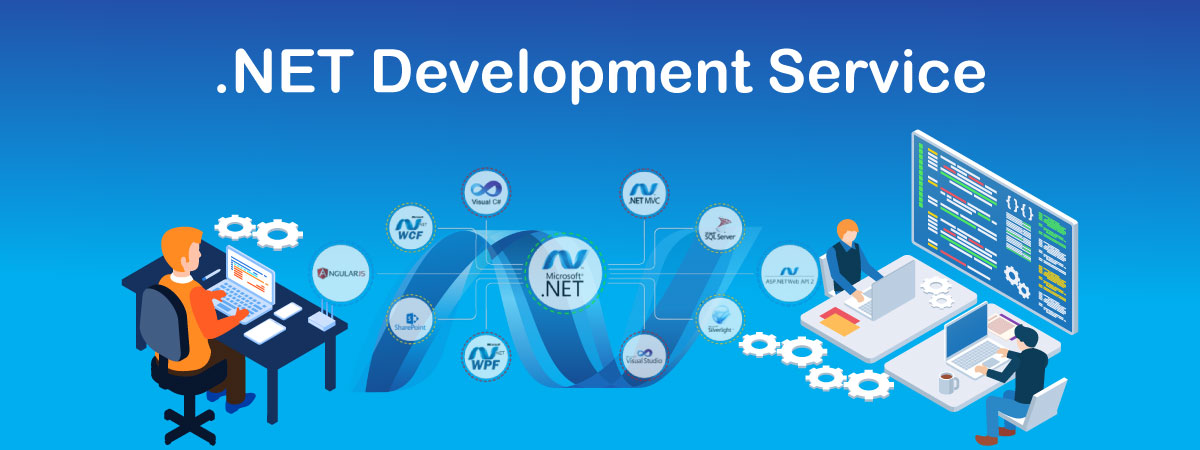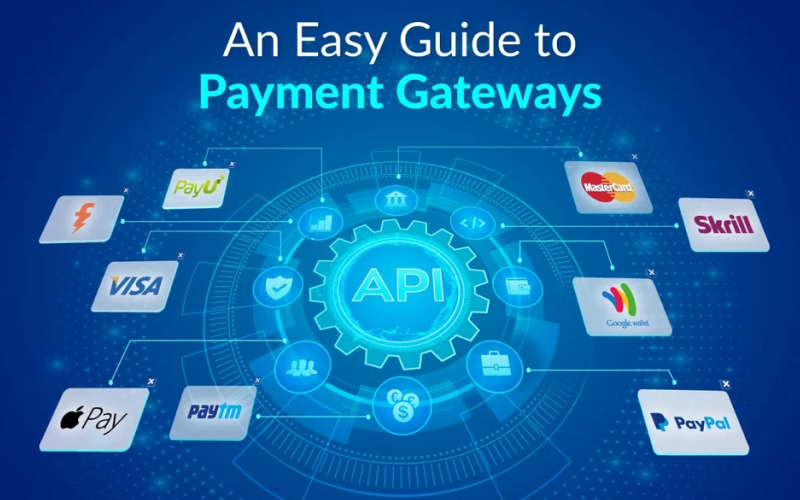Introduction
In the rapidly evolving world of software development, businesses and developers need robust, scalable, and efficient frameworks to build applications that meet modern demands. One of the most powerful and widely used frameworks today is .NET, developed by Microsoft.
.NET is a versatile, open-source, cross-platform framework used to develop a variety of applications, including web, desktop, mobile, cloud, gaming, and IoT solutions. Whether you're a startup, an enterprise, or an independent developer, .NET provides high performance, security, and flexibility to create powerful software solutions.
In this article, we will explore what .NET is, its key features, how it works, and why it is a preferred choice for developers worldwide.
What is .NET?
.NET is a development framework that provides libraries, tools, and runtime environments to build and run applications efficiently. It supports multiple programming languages, including C#, F#, and Visual Basic, making it one of the most flexible and developer-friendly platforms.
Initially introduced as .NET Framework in the early 2000s, Microsoft later introduced .NET Core (a cross-platform, open-source version). In 2020, both platforms merged into .NET 5, followed by .NET 6, .NET 7, and .NET 8, creating a unified framework with powerful features.

Key Components of .NET
- .NET Runtime (CLR – Common Language Runtime) – Manages application execution, memory allocation, and security.
- .NET Libraries – A vast collection of pre-built functions for file handling, database access, UI development, and more.
- ASP.NET – A web development framework for creating dynamic websites and APIs.
- Entity Framework (EF Core) – An Object-Relational Mapping (ORM) tool for database operations.
- Blazor – A framework to build interactive web apps using C# instead of JavaScript.
- Xamarin (Now .NET MAUI) – A framework for cross-platform mobile application development.
Why Choose .NET for Application Development?
1. Cross-Platform Compatibility
With .NET Core and later versions, developers can build and run applications on Windows, macOS, and Linux, making it ideal for cross-platform development.
2. High Performance
.NET is optimized for speed and scalability, making it one of the fastest frameworks for web and enterprise applications. With Just-In-Time (JIT) compilation and Ahead-Of-Time (AOT) compilation, applications run faster and more efficiently.
3. Language Flexibility
- .NET supports multiple languages, including:
- C# – The most commonly used, ideal for web, desktop, and mobile apps.
- F# – A functional programming language used for financial and data-driven applications.
- VB.NET – Often used for enterprise applications.
4. Robust Security Features
- Security is a priority in .NET, with features like:
- Authentication & Authorization (OAuth, JWT, Active Directory)
- Code Access Security (CAS)
- Encryption & Data Protection
5. Scalable and Maintainable Architecture
.NET is ideal for large-scale enterprise applications. With Microservices architecture and API integrations, businesses can develop modular, maintainable, and expandable software solutions.
6. Strong Community and Microsoft Support
Being an open-source framework, .NET has a large developer community and receives regular updates from Microsoft, ensuring continuous improvements and long-term support.
.NET in Web Development – ASP.NET Core
One of the most powerful aspects of .NET is ASP.NET Core, a lightweight, high-performance web framework used to build:
- Dynamic websites
- RESTful APIs
- Real-time applications with SignalR
- Progressive Web Apps (PWAs)
Why ASP.NET Core?
- Faster than traditional ASP.NET
- Cross-platform (Windows, Linux, macOS)
- Built-in dependency injection
- Support for Razor Pages, MVC, and Web APIs
- Seamless cloud integration (Azure, AWS, Google Cloud)
.NET for Mobile Development – .NET MAUI (Xamarin)
With .NET MAUI (Multi-platform App UI), developers can create native mobile apps for:
- Android
- iOS
- Windows
- macOS
Why Choose .NET MAUI?
- Single codebase for all platforms
- Native performance and UI components
- Seamless integration with device features (camera, GPS, etc.)
.NET MAUI makes mobile development easier and more cost-effective by eliminating the need for separate codebases for different platforms.
.NET for Cloud & Enterprise Solutions
.NET is widely used for cloud-based applications, supporting platforms like:
- Microsoft Azure
- Amazon AWS
- Google Cloud
With built-in scalability and microservices support, businesses can build:
- Enterprise resource planning (ERP) systems
- Customer relationship management (CRM) software
- AI-powered applications
- Big Data processing solutions
.NET for Gaming – Unity Engine
Did you know that .NET is also used in game development? The popular Unity Engine relies on C# and .NET for developing 2D, 3D, VR, and AR games.
- Cross-platform compatibility (PC, Console, Mobile, VR)
- Advanced graphics rendering
- AI and physics simulations
For game developers, .NET + Unity is a powerful combination that delivers high-performance games across multiple platforms.
Future of .NET – What’s Next?
With each release, .NET is evolving into a more powerful, efficient, and developer-friendly platform. Future updates focus on:
- Performance enhancements
- Improved cloud integration
- AI & machine learning capabilities
- Advanced security measures
- More efficient mobile & gaming development
Microsoft continues to invest in .NET innovations, ensuring that it remains a leading development framework for years to come.\
Conclusion
.NET is a powerful, versatile, and future-proof framework that enables developers to build fast, secure, and scalable applications across multiple platforms. Whether you’re developing web apps, mobile solutions, enterprise software, cloud services, or even games, .NET provides the best tools and technologies to create innovative solutions.
With cross-platform support, high performance, and strong security, .NET is the ultimate choice for modern software development.
As technology continues to evolve, .NET will remain at the forefront, empowering developers and businesses to create next-generation applications.
Are you ready to start your .NET journey? Stay tuned for more articles on .NET development, best practices, and advanced techniques! 🚀



